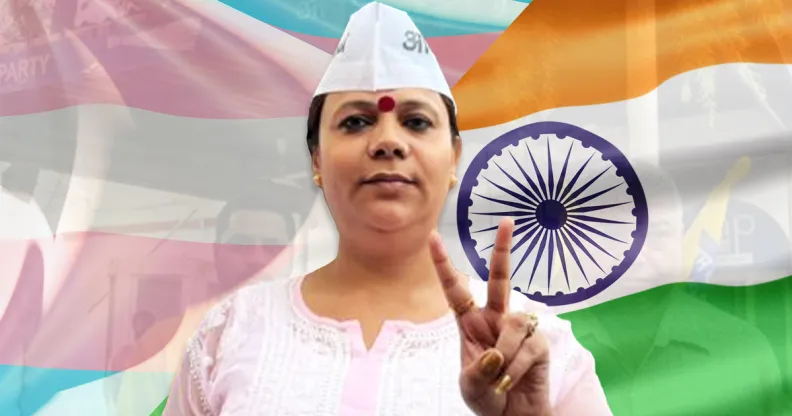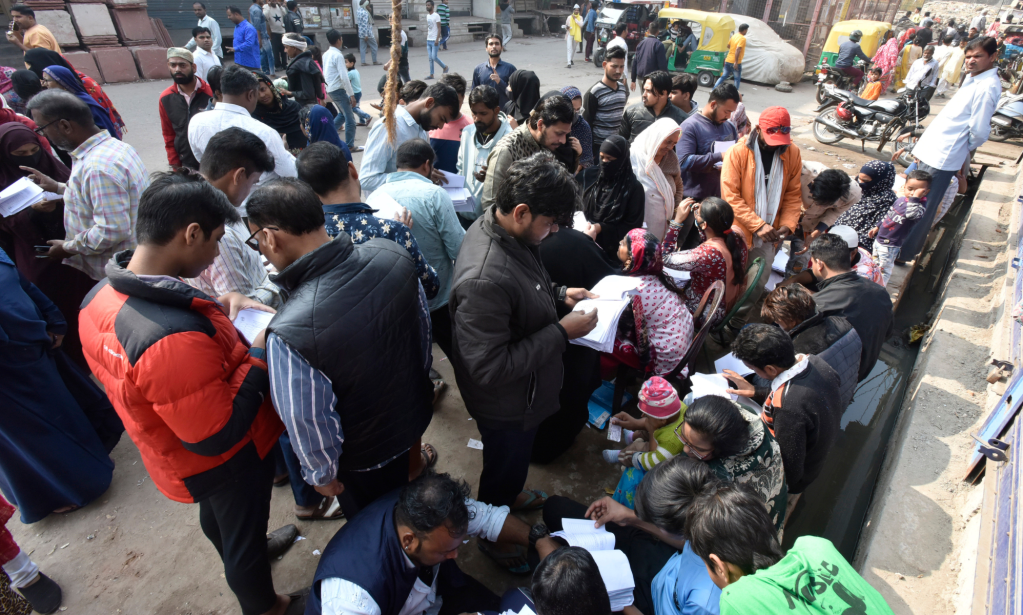Transgender politician wins Indian election in big step for LGBTQ+ representation

Bobi, sometimes known as Bobi ‘Darling’, throws a peace symbol after her win. (Getty)
A trans woman won a major Delhi region for her party during an election on Wednesday (7 December).
Aam Aadmi Party (AAP) candidate Bobi won the Municipal Corporation of Delhi (MCD) election after votes were counted this week.
The trans politician won Sultanpur-A ward against Congress candidate Varuna Dhaka by 6,714 votes according to Indian Express.
Her win came just hours before it was announced that the AAP crossed the finish line with 134 seats, winning against the Bharatiya Janata Party (BJP).
The win means that the AAP now holds a strong majority over the municipal corporation, which makes up one of the three municipalities in Delhi, overseeing the region.

Sultanpur’s new representative has routinely said she would work in cleaning up the corruption within the MCD and “beautify” the constituency.
“I want to dedicate my victory to the people who worked so hard for me,” she said.
“I would like to thank everyone. Now I just have to work for development in my area.”
A long-time social worker, Bobi originally ran as an independent candidate during the 2017 MCD election, but later joined up with the self-proclaimed “anti-corruption” party.
She is also well known for her work toward improving education and social mobility in and around Sultanpur.
Her victory was incredibly close during pollings, with BJP regularly overtaking AAP multiple times before votes were fully counted.
In the end, BJP failed to win the constituency and the wider election, finishing with 104 seats according to NDTV.
Bobi’s win is a huge step for LGBTQ+ representation
The victory is another huge step for LGBTQ+ rights and representation in India.
While the country has many rights in place for queer minorities, it still has a long way to go in actualising true equality.
Same-sex marriage is still forbidden, despite routine attempts by activists to reverse the government’s policy.
A Supreme Court case involving two queer couples urging the government to acknowledge the ban as unconstitutional was heard on 25 November.
Lead petitioners Supriyo Chakraborty and Abhay Dange argued that not extending the rights of marriage to LGBTQ+ couples is an affront to their human rights.
The inability to marry means that the couple cannot adopt together, nor can they inherit each other assets.
Additionally, it means that hospital visits for medical emergencies could be refused since the two are not legally recognised as family.

